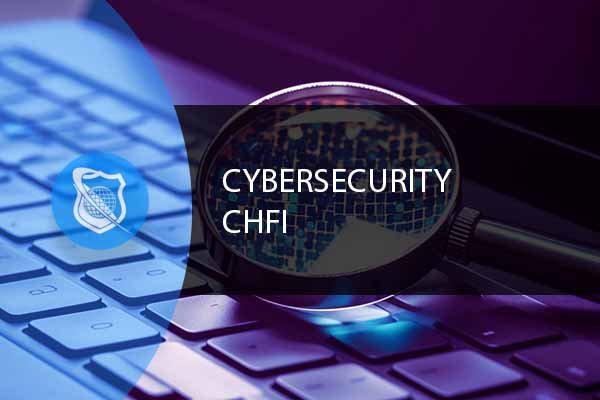What is JPA (Java Persistence API)
Definition: JPA (Java Persistence API) Java Persistence API (JPA) is a specification for accessing, persisting, and managing data between Java objects/classes and a relational database. It serves as a bridge

In the ever-evolving world of cybersecurity, the role of a CHFI Computer Hacking Forensic Investigator has become increasingly vital. The CHFI Computer Hacking Forensic Investigator is a professional who uncovers the evidence of cybercrimes, analyzes digital data, and assists in legal proceedings. With a growing number of cyber threats, the tools and techniques used by these experts are essential in tracking down perpetrators and safeguarding digital assets. This article will delve into the various tools and methodologies employed by CHFI professionals, providing insights from 20 years of experience in the field.
The Computer Hacking Forensic Investigator (CHFI) is not just a title but a significant responsibility in the cybersecurity landscape. CHFI professionals are tasked with investigating and analyzing cybercrimes, extracting evidence, and assisting in legal processes. The CHFI Computer Hacking Forensic Investigator’s role is to bridge the gap between cybersecurity measures and law enforcement, ensuring that digital evidence is handled with integrity and can stand up in court.
Over the past two decades, the field of computer hacking forensic investigation has evolved dramatically. In the early days, the focus was primarily on basic data recovery and analysis. However, with the rise of complex cyber threats, the need for specialized tools and techniques has grown exponentially. Today’s CHFI Computer Hacking Forensic Investigator must be adept at handling various types of digital evidence, from simple email trails to intricate malware analyses.

Embark on a thrilling career in cybersecurity with our CHFI Course – Computer Hacking Forensics Investigator. Master computer forensics, and fortify network integrity. Ideal for law enforcement, security professionals, and anyone passionate about cyber safety.
In our interconnected world, where data breaches and cybercrimes are becoming more frequent, the role of a CHFI has never been more critical. Organizations of all sizes rely on the expertise of an CHFI Computer Hacking Forensic Investigator to protect their digital assets and pursue legal actions against cybercriminals. The field is not limited to corporate environments; governments, law enforcement agencies, and even individuals seek the services of CHFI professionals to safeguard their digital lives.
The toolkit of a CHFI Computer Hacking Forensic Investigator is vast and continually evolving. From data recovery tools to network analysis software, the array of instruments available is designed to tackle various challenges in cyber investigation. Some of the widely used tools include EnCase, FTK, Wireshark, and Autopsy, each serving a specific purpose in the forensic process.
In the world of CHFI, both commercial and open-source tools have their place. While commercial solutions like EnCase and FTK provide extensive support and integration, open-source alternatives such as Autopsy offer flexibility and community-driven development. The choice between these options often depends on the specific needs and budget constraints of the CHFI Computer Hacking Forensic Investigator.

Embark on a thrilling career in cybersecurity with our CHFI Course – Computer Hacking Forensics Investigator. Master computer forensics, and fortify network integrity. Ideal for law enforcement, security professionals, and anyone passionate about cyber safety.
The work of an CHFI Computer Hacking Forensic Investigator is methodical and meticulous. It begins with the identification of the incident, followed by the careful collection of digital evidence. Preservation of the evidence is crucial to maintain its integrity. The analysis phase involves detailed examination using specialized tools, leading to the interpretation and documentation of the findings. Finally, the evidence is presented in a legal context, often requiring the CHFI professional to testify in court.
Real-world applications of CHFI techniques can be found in various high-profile cases. Whether it’s tracking down a notorious hacker or uncovering corporate espionage, the skills of an CHFI Computer Hacking Forensic Investigator have proven invaluable. Case studies such as the apprehension of cybercriminals behind major ransomware attacks or the investigation of data breaches in large corporations highlight the effectiveness of these techniques.
Becoming a certified CHFI Computer Hacking Forensic Investigator requires a combination of education, experience, and examination. Candidates must have a strong background in information technology, preferably with hands-on experience in cybersecurity. Various training programs and courses are available to prepare for the certification exam, focusing on the tools, techniques, and legal aspects of forensic investigation.
The journey to becoming an CHFI Computer Hacking Forensic Investigator involves rigorous training and a comprehensive examination. Training programs cover essential topics such as evidence handling, forensic tools, network analysis, and legal procedures. The examination tests the candidate’s knowledge and practical skills, ensuring they are well-equipped to handle real-world challenges.

Embark on a thrilling career in cybersecurity with our CHFI Course – Computer Hacking Forensics Investigator. Master computer forensics, and fortify network integrity. Ideal for law enforcement, security professionals, and anyone passionate about cyber safety.
Certification as a CHFI not only validates one’s expertise but also opens doors to new career opportunities. Certified CHFI Computer Hacking Forensic Investigators are sought after by organizations across various sectors, including law enforcement, government, finance, healthcare, and more. The certification enhances credibility and demonstrates a commitment to excellence in the field.
The skills of an CHFI Computer Hacking Forensic Investigator are not confined to a single industry. From healthcare to finance, government to private corporations, the expertise of CHFI professionals is utilized to protect sensitive information and investigate cybercrimes. Their ability to uncover hidden evidence and provide actionable insights is vital in maintaining the integrity of digital environments.
Real-world cases offer valuable lessons for both current and aspiring CHFI professionals. Adhering to best practices, such as proper evidence handling, continuous learning, and collaboration with legal experts, ensures success in the field. The dynamic nature of cybersecurity requires an CHFI Computer Hacking Forensic Investigator to stay abreast of the latest trends and technologies.
The field of computer hacking forensic investigation is ever-changing. Emerging trends such as Artificial Intelligence (AI) in forensics, cloud-based investigations, and the integration of Internet of Things (IoT) devices present new opportunities and challenges for the CHFI Computer Hacking Forensic Investigator.
With new technologies come new ethical dilemmas and challenges. Ensuring privacy, maintaining legal compliance, and navigating complex international laws are just a few of the hurdles faced by CHFI professionals. Balancing technological advancements with ethical considerations is a delicate task that requires continuous reflection and adaptation.
The future of CHFI is promising, with growing demand and evolving capabilities. As cyber threats become more sophisticated, the role of an CHFI Computer Hacking Forensic Investigator will continue to expand. Continuous innovation, collaboration, and education will shape the future of this exciting field, offering endless possibilities for those dedicated to excellence.
The journey of a CHFI Computer Hacking Forensic Investigator is filled with discovery, challenges, and rewards. From mastering the tools and techniques to navigating the legal landscape, the role is multifaceted and essential in today’s digital world. The insights shared in this article, drawn from 20 years of experience, offer a glimpse into the life of an CHFI Computer Hacking Forensic Investigator. Whether you are an aspiring professional or simply curious about the field, the world of CHFI awaits, ready to unveil its secrets and shape the future of cybersecurity.
A CHFI Computer Hacking Forensic Investigator plays a critical role in identifying, analyzing, and interpreting digital evidence gathered from cybercrime scenes. They use a variety of tools and techniques to recover data from digital devices, ensuring the integrity of the evidence while following legal and ethical guidelines. Their work is pivotal in solving cybercrimes, supporting legal proceedings, and enhancing cybersecurity measures by understanding how breaches occur.
CHFI professionals utilize a wide array of tools for digital forensics, including EnCase, FTK (Forensic Toolkit), Autopsy, and Cellebrite. These tools help in acquiring, analyzing, and reporting on digital evidence found in computer systems, mobile devices, and network logs. Each tool has unique features suited for specific types of investigations, making them indispensable in the toolkit of a forensic investigator.
CHFI techniques are specifically designed for post-breach analysis and forensics, unlike other cybersecurity practices that focus on prevention, detection, and response. CHFI involves detailed procedures for securely collecting and analyzing digital evidence, ensuring its admissibility in court. This includes understanding file systems, recovering deleted files, and tracing unauthorized access, which are crucial for forensic investigations but not typically the focus of general cybersecurity roles.
Yes, someone without a cybersecurity background can pursue a CHFI certification, but it may require additional effort to familiarize themselves with basic IT and cybersecurity concepts. The CHFI certification is designed to provide comprehensive training on digital forensics, making it accessible to individuals from various backgrounds. However, having a foundational understanding of computer systems, networks, and security principles will significantly benefit those looking to excel in this field.
Obtaining a CHFI certification can open up numerous opportunities in the cybersecurity field, including roles as a digital forensics analyst, incident responder, cybersecurity consultant, or a law enforcement officer specializing in cybercrime investigations. With the increasing prevalence of cybercrimes, the demand for skilled forensic investigators is on the rise. The certification not only validates your expertise in forensic investigation but also demonstrates your commitment to tackling cyber threats, making you a valuable asset to any organization.

Embark on a thrilling career in cybersecurity with our CHFI Course – Computer Hacking Forensics Investigator. Master computer forensics, and fortify network integrity. Ideal for law enforcement, security professionals, and anyone passionate about cyber safety.
Lorem ipsum dolor sit amet, consectetur adipiscing elit. Ut elit tellus, luctus nec ullamcorper mattis, pulvinar dapibus leo.
$49.99 Original price was: $49.99.$16.99Current price is: $16.99. / month with a 10-day free trial
Definition: JPA (Java Persistence API) Java Persistence API (JPA) is a specification for accessing, persisting, and managing data between Java objects/classes and a relational database. It serves as a bridge
Definition: Endpoint Security Endpoint security refers to the approach of protecting computer networks that are remotely bridged to client devices. These devices, commonly known as endpoints, include laptops, desktops, mobile
Definition: Ansible Ansible is an open-source automation tool used for configuration management, application deployment, and task automation. It is designed to automate IT infrastructure and applications, simplifying complex processes and
Definition: API Contract Testing API Contract Testing is a type of software testing that ensures that interactions between different API endpoints and services conform to predefined contracts. These contracts outline
Knockout.js is a JavaScript library that helps you create rich, responsive user interfaces with a clean underlying data model. It’s particularly well-suited for handling dynamic and complex web applications by
Definition: Java Generics Java Generics are a feature in the Java programming language that allows developers to write more flexible and reusable code. By using generics, you can create classes,
Definition: Information Radiator An Information Radiator is a large, highly visible display used to convey essential information to a team or organization. These displays are typically placed in a common
Definition: Reactive Extensions (Rx) Reactive Extensions (Rx) is a library for composing asynchronous and event-based programs using observable sequences and LINQ-style query operators. It simplifies the process of working with
Definition: JSON (JavaScript Object Notation) JSON (JavaScript Object Notation) is a lightweight data interchange format that is easy for humans to read and write and easy for machines to parse
Definition: Lua Lua is a powerful, efficient, lightweight, and embeddable scripting language. It is designed primarily for embedded systems and clients and is often used for scripting in games, extending
Definition: Linker A linker, in the context of computer science and software engineering, is a program that combines various object files generated by a compiler into a single executable file.
Definition: Network Schema A network schema is a structured representation or diagram that outlines the configuration and relationships of a computer network. This schema encompasses the hardware, software, connections, and
ENDING THIS WEEKEND: Train for LIFE at our lowest price. Buy once and never have to pay for IT Training Again.